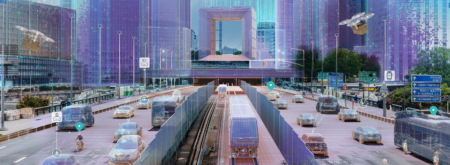A new street mapping project has been launched as part of the Smart Oxford smart cities initiative, which could one day transform how Oxford City Council (OCC) manages its services across the UK city, while also paving the way for the introduction of autonomous vehicles.
The project being trialled over the next few months by OCC and the University of Oxford’s Robotics Institute (ORI) will see sensors attached to a city council street cleaning vehicle operating in the city center to create 3D maps that can be used to trial the development of autonomous vehicles. At the same time, the research team at the ORI is exploring further data that may be obtained to help the OCC and its partners to better manage the city. The data that is being collected as part of the project will include:
Road and pavement surface damage;
Air quality;
People numbers and movements;
Litter and fly-tipping;
Parked vehicles;
Broken streetlights and signs;
Heat loss from buildings.
The information will enable more effective planning from the city council and its partners, while creating records of unreported issues, such as fly-tipping, for the council to act upon. If the project is successful, the new innovations could see the council add the mapping tool to its fleet of vehicles. OCC is a founding partner of Smart Oxford, a strategic program of a wide range of city partners working together to develop and promote Oxford as a smart city.
The Smart Oxford project board acts to help initiate, orchestrate and support the smart city activities and projects being carried out, with the data from the 3D survey project to be published on the Oxfordshire Open Data platform and made available to the partners.
“Working with the Oxford Robotics Institute we are exploring how the city council’s fleet of street cleaners and refuse collection vehicles can be fitted with sensors, developed by the ORI, to map the city,” explained Sebastian Johnson, vice chairman of the Smart Oxford Board and project manager at OCC.
“At the same time we are looking to gather information and data that can help us improve the way we run the city as an efficient and effective council. Our open data platform will also allow innovators to explore and use the data to create new ideas and applications. Oxford is the home to world-leading mobile autonomy and robotics research and development, and the city council and our wider partners on the Smart Oxford Board are keen to support innovation and research to benefit those living in the city.”
Professor Paul Newman, professor of information engineering at the University of Oxford, commented, “We are really excited to be working in our home city with the city council to map and gather data using one of our NABU (NAvigation Base Unit) sensors on a street sweeper. This trial will help us with our own research for autonomous vehicles, and will help the council and other partners gather data that can improve the management and maintenance of the city.”




